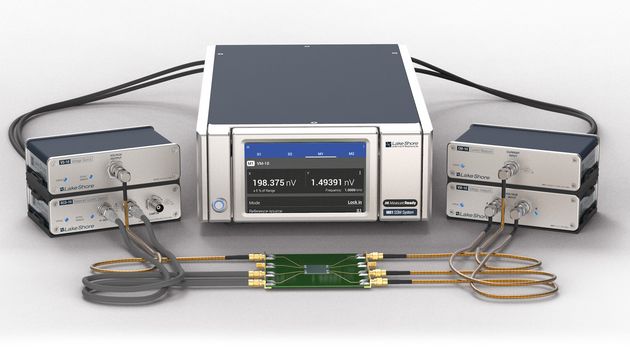New approach for low-level measurements of nanostructures
Normally, measurements on semiconductor materials, high-temperature semiconductors, new photovoltaic components and organic electronic materials require low-level sources and measurements. Since they are frequently based on nanostructures, even minor heat input can disrupt, damage or even destroy the systems. This is why the measurable signals must be as close as possible to the noise level.
There are two approaches for this type of measurement: DC measurements and AC measurements up to the RF frequency range.
DC measurements result in high-precision, reproducible results which can easily be compared with recognized standards. However, these measurements have their limitations, as they are very sensitive to pink (1/f) noise. The signals of interest are at least as strong as the pink noise, repeated measurements can produce enough statistics to achieve a high level of accuracy.
As the frequency of the measurement increases, the proportion of this noise decreases and only the white background noise remains, which is why AC measurement methods are also very popular. If, on the other hand, the sample is excited at a specific frequency (reference frequency), the measurement obtained is the modulated response of the sample as well as DC signals, such as thermoelectric voltages, which arise from the measurement setup itself and also higher order responses, which are at harmonic frequencies of the reference frequency.
A homodyne or lock-in technique is typically used to extract the modulated signal. For these types of measurements, Lake Shore has developed the M81-SSM.
SSM stands for Synchronous Source Measure. It combines low-level sources and measurements with tightly synchronized DC and AC signals in a half rack device.
In addition to DC and AC measurements, lock-in measurements are also possible from one device. This also simplifies the setup and error sources like unshielded cables or earth loops can be avoided.
More information can be found in Lake Shore’s publication “A new approach to improving confidence in low-level measurements of nanostructures”.
Please contact us for more information on the M81 and its applications.




